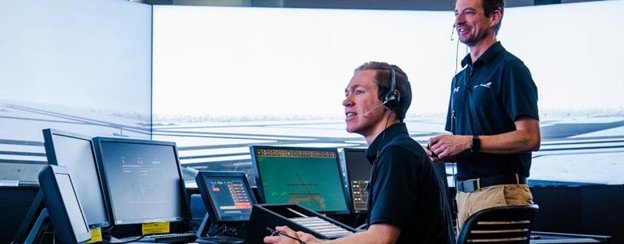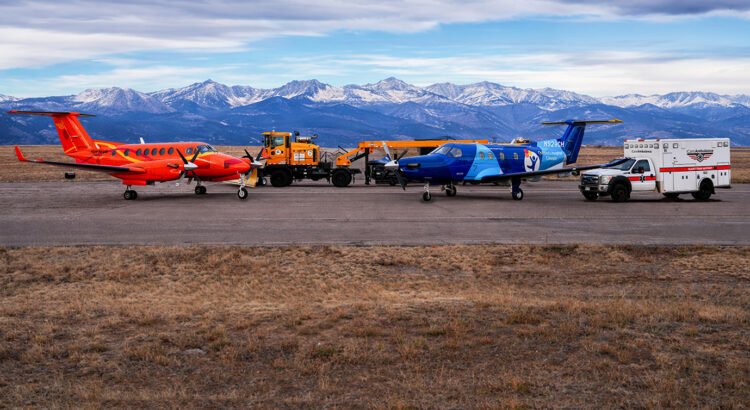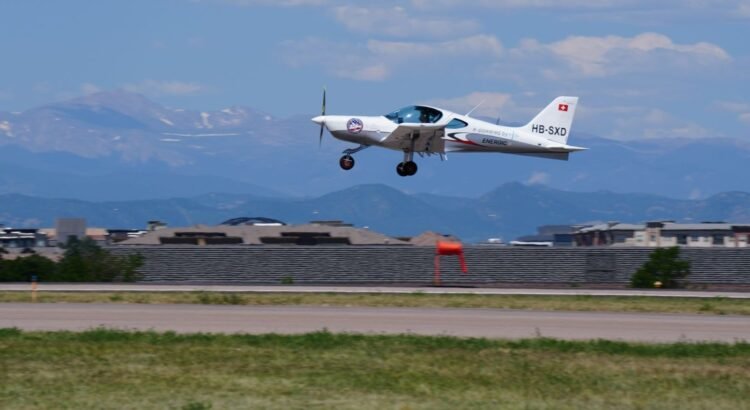Aims Community College has reached a historic milestone in aviation education, officially earning designation as an Enhanced Air Traffic Collegiate Training Initiative (AT-CTI) institution through the Federal Aviation Administration (FAA). Following a successful FAA on-site evaluation in January, Aims is now one of several collegiate institutions nationwide approved under the Enhanced AT-CTI program. Aims is […]
Colorado
Colorado Aeronautical Board Approves $442,422 in Aviation Education and Workforce Development Grants
The Colorado Department of Transportation (CDOT) Division of Aeronautics is pleased to announce that the Colorado Aeronautical Board (CAB) has officially approved $442,422 in grant funding to support 15 organizations through the FY2026 Aviation Education and Workforce Development Grant Program. These grants are designed to support organizations that focus on aviation education and help develop […]
Colorado Aeronautical Board Approves $9 Million in State Airport Funding
The Colorado Aeronautical Board (CAB) approved more than $9 million in State and Local Colorado Discretionary Aviation Grant (CDAG) funding to support aviation infrastructure improvements at airports across the state during its Jan. 27, 2026 meeting. The first round of 2026 CDAG awards will provide $9,064,332 in state funding to 20 Colorado airports, leveraging an […]
Colorado 2025 Division of Aeronautics Annual Report Released
The Colorado Division of Aeronautics has released its 2025 Annual Report, highlighting another year of strong aviation activity statewide and major investments in airport infrastructure, safety, education, and innovation. The report outlines funding distributions, key statewide initiatives, progress toward unleaded aviation fuels, and advancements in emerging aircraft technologies, demonstrating our continued commitment to a safe, […]
Centennial Airport’s New Advanced Snow Removal Equipment Keeps Air Ambulance Services Flying Through Winter Storms
Pictured (left to right): Flight for Life Colorado Beechcraft King Air, Centennial Airport Snow Removal Equipment, Children’s Hospital Colorado Pilatus PC-12, iCare Ambulance Centennial Airport proudly announces the addition of two state-of-the-art snow removal vehicles to its fleet, significantly enhancing the airport’s ability to maintain clear and safe runways during Colorado’s severe winter weather. This […]
Centennial Airport Announces First-in-the-Nation Fleet Purchase of All-Electric Trainers
Photo – B23 Energic aircraft flying at Centennial Airport during the “Across America” Tour July 2025. Centennial Airport announced that Centennial Flyers, a flight school based at the airport, has confirmed an order for six all-electric training aircraft e-powered by H55, a Swiss electric propulsion systems manufacturer. Centennial Flyers will be the first operator in […]
Jackson County Airport Completes Critical Runway 4/22 Reconstruction Project
Jackson County Airport (33V) in Walden, Colorado, announced the completion of the full reconstruction of the airport’s runway 4/22. The project ensures long-term safety and efficiency for aviation users across Colorado’s North Park region and enhances critical emergency access to the area. Located one mile north of Walden, Jackson County Airport serves as a vital […]
Jackson County Airport Completes Critical Runway 4/22 Reconstruction Project
Jackson County Airport (33V) in Walden, Colorado, announced the completion of the full reconstruction of the airport’s runway 4/22. The project ensures long-term safety and efficiency for aviation users across Colorado’s North Park region and enhances critical emergency access to the area. Located one mile north of Walden, Jackson County Airport serves as a vital […]
Colorado Division of Aeronautics Now Accepting Applications for 2026 Aviation Education Grant Program
The Colorado Department of Transportation Division of Aeronautics has announced the launch of the 2026 Colorado Aviation Education Grant Program. The application window is now open to eligible candidates with a deadline of December 15th, 2025 for submission. The purpose and intent of this aviation education program is to support education programs, projects, and initiatives […]
ZenaTech Signs Offer to Acquire Colorado Land Surveying Firm Expanding DaaS Business
ZenaTech, Inc. announced that it has signed an offer to acquire a long-established Colorado-based land surveying firm with a portfolio developers, municipalities, and utilities customers. When closed, this will mark ZenaTech’s first DaaS location in its Central West US region, expanding the company’s rapidly growing national presence. The firm to be acquired has a well-respected […]







